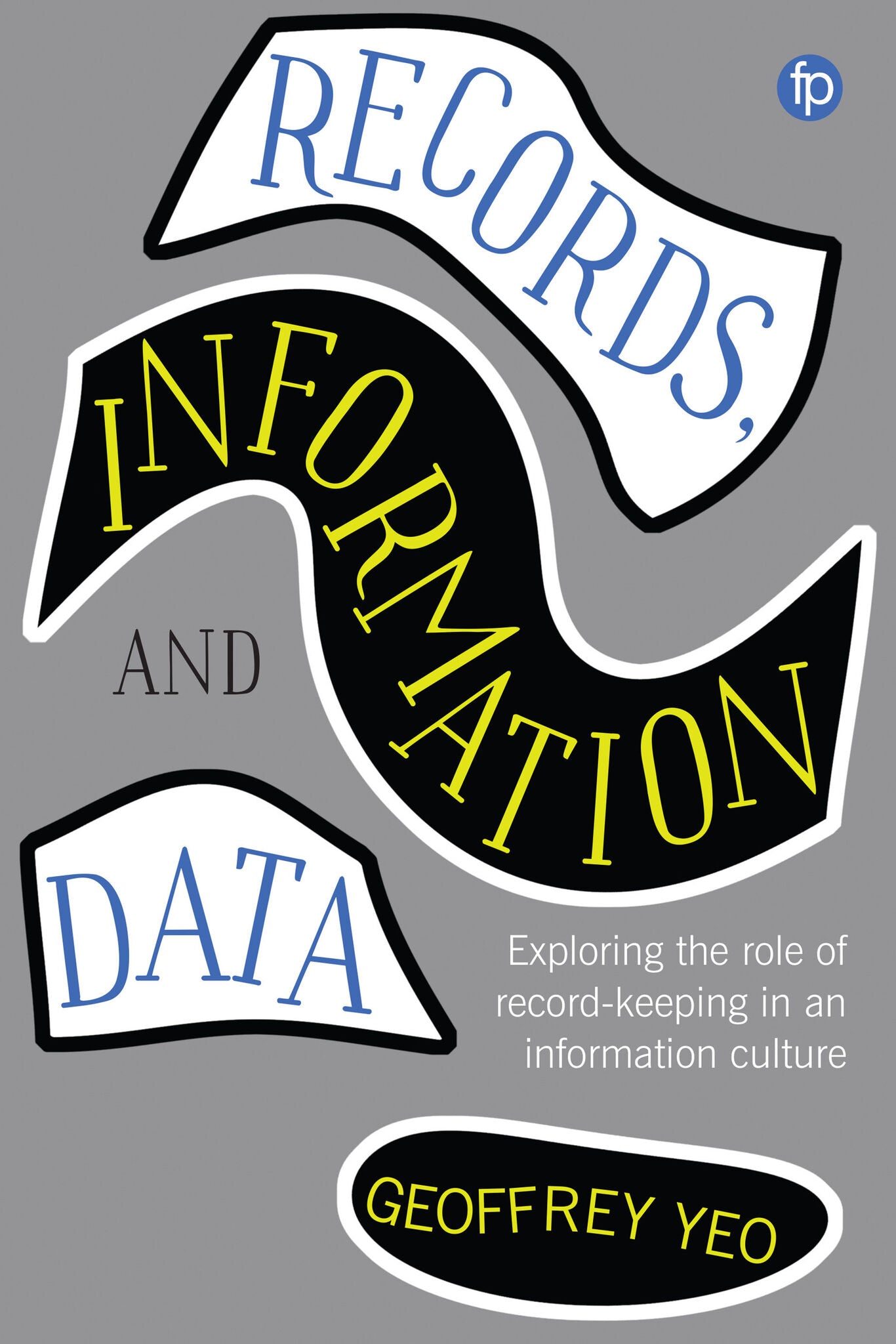We're sorry. An error has occurred
Please cancel or retry.
Records, Information and Data

Some error occured while loading the Quick View. Please close the Quick View and try reloading the page.
Couldn't load pickup availability
- Format:
-
27 July 2018

This dynamic book considers whether and how the management of records (and archives) differs from the management of information (and data).
Can archives and records management still make a distinctive contribution in the 21st century, or are they now being dissolved into a wider world of information governance? What should be our conceptual understanding of records in the digital era? What are the practical implications of the information revolution for the work of archivists and records managers?
Geoffrey Yeo, a distinguished expert in the global field, explores concepts of ‘records’ and ‘archives’ and sets today’s record-keeping and archival practices in their historical context. He examines changing perceptions of the nature and purpose of records management and archival work, notions of convergence among information-related disciplines, and archivists’ and records managers’ attitudes to information and its governance.
Starting with Peter Morville’s dictum that ‘when we try to define information, we become lost in a hall of mirrors’, Yeo considers different understandings of the concept of ‘information’ and their applicability to the field of archives and records management. He also looks at the world of data science and data administration, and asks whether and how far recent work in this area can enhance our knowledge of how records function and how they relate to the information universe.
Key topics covered include:
- The keeping of records: a brief historical overview
- Thinking about records and archives: the transition to the digital
- Archivists, records managers and the allure of information
- Finding a way through the hall of mirrors: concepts of information
- Records and data
- Why records are not (just) information; understanding records in the digital era.
This thought provoking and timely book is primarily intended for records managers and archivists, but should also be of interest to professionals in a range of information-related disciplines. In addressing the place of record-keeping in contemporary information culture, it aims to provide a balance of theory and practice that will appeal to practitioners as well as students and academics around the world.

LANGUAGE ARTS & DISCIPLINES / Library & Information Science / Archives & Special Libraries, Archiving, preservation and digitization, BUSINESS & ECONOMICS / Information Management, Library, archive and information management, Knowledge management

Introduction Concepts of information, data and records Background to the book Structure and content Acknowledgements
1. The making and keeping of records: a brief historical overview Record-making and record-keeping over 10,000 years Records, memory and evidence Repositories and their curators Archivists and the emergence of records management
2. Thinking about records and archives; the transition to the digital Fixity and fluidity in the digital domain Adventures over time Record aggregations Archival mind-sets Information: a fifth paradigm?
3. Archivists, records managers and the rise of information
Accentuating information in contemporary culture Records management and information governance Information and archives Making connections between records and information: diverse views Managing information ‘as a record’
4. Finding a way through the hall of mirrors: concepts of information
Information and its reification Records management and new concepts of information Information as content or information as affordance? Dissent and debate
5. Records and data
The ‘datafication’ of records Further perspectives on data and record-keeping Data and information: some conflicting views Factuality Contested concepts
6. Representation, performativity and social action: why records are not (just) information
Representations Speech acts Propositions and performativity Data, computers and the making of speech acts Metadata Doing things with records From speech acts to social acts The ‘information potentials’ of records Information, evidence and other affordances
7. Managing information or managing records?
Conceptions and practices of ‘information management’: information as proposition Information management and records management: two peas from different pods? Making use of records despite their imperfections Knowing ‘what was said’ Characteristics of records and information ‘Authoritative’ records and the scope of record-keeping
Concluding thoughts: record-keeping present and future
The digital deluge Records in an information culture



